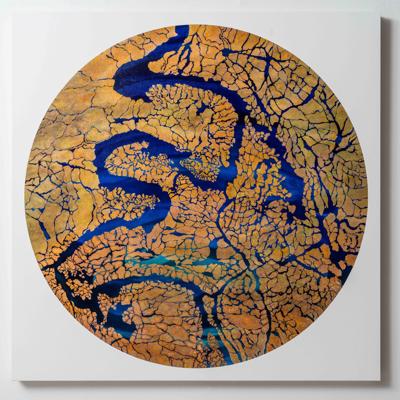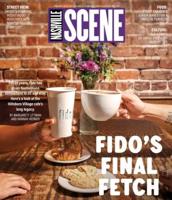
We see the effects of climate change every day — extreme temperatures, severe storms, drought, raging wildfires. But beyond such obvious physical threats, there’s also an often overwhelming sense of distress or anxiety surrounding such issues.
As a professor at Vanderbilt University and director of The Curb Center for Art, Enterprise and Public Policy, Leah Lowe has seen this so-called climate anxiety — or “eco-grief” — in action.
“Several years ago, I was teaching a class in American Studies called the Art of Social Justice,” says Lowe, a respected director within Nashville’s professional theater scene. “In this course, we looked at how various artists had responded to different social and cultural crises throughout history. It was a wonderful, lively class full of people with brilliant ideas. But when we reached the unit on climate change, the room went dead silent. When I asked what the problem was, one of the students said, ‘I’m so anxious about climate change, I can’t even talk about it.’ We muddled our way through, but that experience really stayed with me.”
Fast-forward to a conversation in which David Wright — Vanderbilt’s Stevenson Professor of Chemistry and director of the Program in Communication of Science and Technology — approached Lowe about a potential project.
“I had just taken over the CSET program, and we were looking for ways to expand — not just through scholarship, but in more public-facing ways — to communicate the complexity of climate change to the public,” Wright says. “To me, there’s really no greater challenge facing the scientific community than how we communicate science to the public. Theater gives us an entirely different way to talk about science and technology and the impacts of climate change, because it’s narrative. It uses everyday language, and there’s a sort of lived experience that allows the audience to connect. So from the beginning, it was clear we wanted to do some kind of theater production.”
Through those early conversations, the Vanderbilt Eco-Grief Initiative was born. Spearheaded jointly by Vanderbilt’s Curb Center for Art, Enterprise and Public Policy; the Science Communication Media Collaborative Grand Challenge Initiative; and the Vanderbilt University Department of Theatre, the project offers a “collaborative inquiry into the emotional landscapes of living through climate change.”
Lowe says she put out a call for playwrights for the commission in spring 2023, expecting maybe 50 applications. She received nearly 300. Four playwrights — Gina Femia, Kristin Idaszak, Reynaldo Piniella and Jaymes Sanchez — were selected and given the opportunity to meet with Vanderbilt students to gain further insight into current thinking around climate issues. Beginning this weekend, those plays will be produced at Neely Auditorium, employing sustainable materials and methods throughout. In addition, a visual art exhibition titled Extraction/Interaction is currently open at the Curb Center, featuring works from Will Wilson, Eliza Evans and John Sabraw.
“One of the things that I find interesting is that there are so many different ways of engaging with this topic,” Lowe says. “We kicked off the project by having [New Orleans-based author] Mary Annaïse Heglar visit the campus. We found three visual artists who are engaging in different ways with extractive industries. And our playwrights have all gone in such wildly different directions. I think when you’re using the term ‘eco-grief,’ there’s an assumption that it’s going to be kind of bland or a real downer. But these works are filled with humor and hope and love, and there are so many opportunities for connection. I’m really excited to see what the response will be, and what sort of conversations these plays will provoke.”
One of those plays is Kristin Idaszak’s Blue Blood Red Knot. Examining the “interdependence of human and more-than-human creatures,” this thoughtful work considers the plight of the horseshoe crab — whose blood is often used in testing certain drugs and medical devices. And while the play digs into everything from supply-chain issues to the dwindling population of these ancient creatures, at its heart, it’s something of a buddy comedy — with a young woman named Violet rescuing a horseshoe crab named Eloise from a lab and embarking on an unlikely road trip.
“I feel like ‘eco-grief’ as a container is both so specific and so expansive,” says Idaszak, a Chicago-based writer and multidisciplinary theater artist. “In the theater, we have a unique opportunity — and I would even say clarion call — to take something that feels extraordinarily daunting and impenetrable and make it more human and approachable. There are so many facets to the climate crisis, and I’m fascinated by the ways in which science and art both seek to make meaning of the universe.
“I’m incredibly grateful for Leah’s vision, and for the Curb Center as a home and steward for this project,” she adds. “There’s something really exciting about knowing that my work is going to be part of a larger conversation about climate change.”





